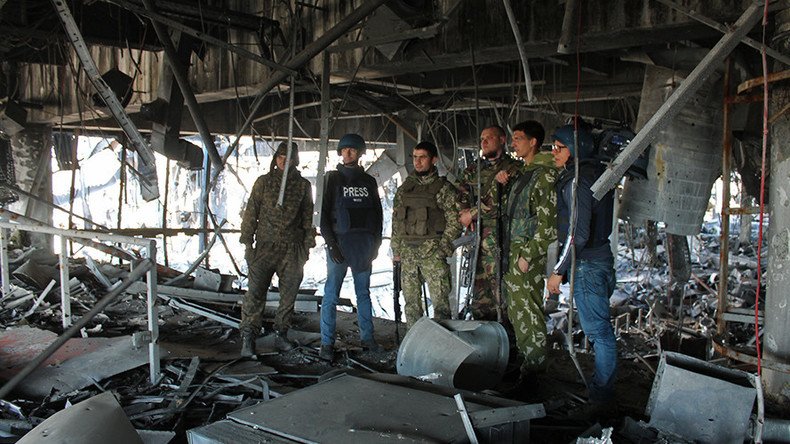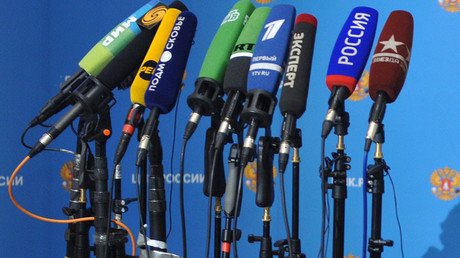Pro-Russia journalists in Ukraine face ‘harassment, other serious problems’ – HRW

There is concern for journalists and media outlets in Ukraine who are thought to have a pro-Russian or pro-rebel stance, Rachel Denber, the Deputy Director of Human Rights Watch Europe and Central Asia Division, told RT.
Human Rights Watch has called on Ukraine to lift a ban on 17 Russian reporters and media executives.
The new blacklist was approved by President Poroshenko late last week and adds to an earlier ban on 41 journalists from several countries.
Human Rights Watch acknowledges Ukraine may have legitimate concerns about “Russian propaganda” but said targeting journalists merely damages Kiev's own interests.
It also called on the EU and US to make it clear they do not support such measures and to press Ukraine to respect media freedom.
RT: How do you assess the overall current state of press freedom in Ukraine? Are there any troubling or promising developments?
Rachel Denber: Overall, in Ukraine it is possible to have a plurality of views conveyed in the mass media. Having said that, there are many other places of concern where there have been harassment and warnings and other serious problems that have happened with journalists and media outlets that are perceived to have a pro-Russian or pro-rebel stance in their publications.
I think one of the things that HRW has previously flagged were things like the publication on a website called ‘Mirotvoretz’ [‘peacekeeper’] in Ukraine of a list of many people who had been accredited by rebel de-facto authorities in the breakaway regions of Ukraine. That kind of accreditation is required for your own safety if you are going to work there.
By publishing the names of people who have been accredited, there telephones, emails and other contact information and by also implying that these people were somehow collaborating with terrorists, this website really threatened and undermined the safety of the journalists who were named and who had done the legitimate work in these areas. And instead of speaking out against this, a couple of high Ukrainian officials actually endorsed it. It is kind of a mixed picture.
There were some laws that were adopted last year as you know in the name of “combating Russian information war and combating propaganda” that also banned communism, communist symbols and “pro-communist propaganda”.
RT: Your organization also called on the EU and the US to express their disapproval of "arbitrary measures against the media." Do you expect any reaction from them?
RD: I am hopeful that they will do that because Ukraine, the US and EU and member states are supposed to be friends and allies of Ukraine. And that is what a friend and an ally would do. It would point out the contradiction in this policy and convince, persuade Ukrainian officials that this is not the right way to go about it.
RT: Ukraine's leadership has repeatedly promised to put the country on the road to joining the European Union. Do actions like this damage its chances of that ever happening?
RD: I would hope that in the course of this dialogue among friends and allies that they [Ukraine] would listen. Yes, it is because ultimately it is in their interests.
RT: In terms of the situation in Ukraine, do you sense that it is getting worse or do you see a chink of light somewhere regarding media freedoms?
RD: I am not pessimistic. I would hesitate to make any predictions. So, I would hope that because Ukraine seeks closer a relationship with the West, because Ukraine wants to hold itself to a higher standard that it will ultimately respect media freedoms. We haven’t seen any implementation of this anti-communist law; I hope that this continues to be the case. I hope that with the Ukraine’s relationship with the EU and its member states and multi-lateral institutions like the Council of Europe, like the UN and with OSCE and with other values-based institutions that throughout this relationship, it would adopt policies and practices that would be in line with its constitution values.
The statements, views and opinions expressed in this column are solely those of the author and do not necessarily represent those of RT.













